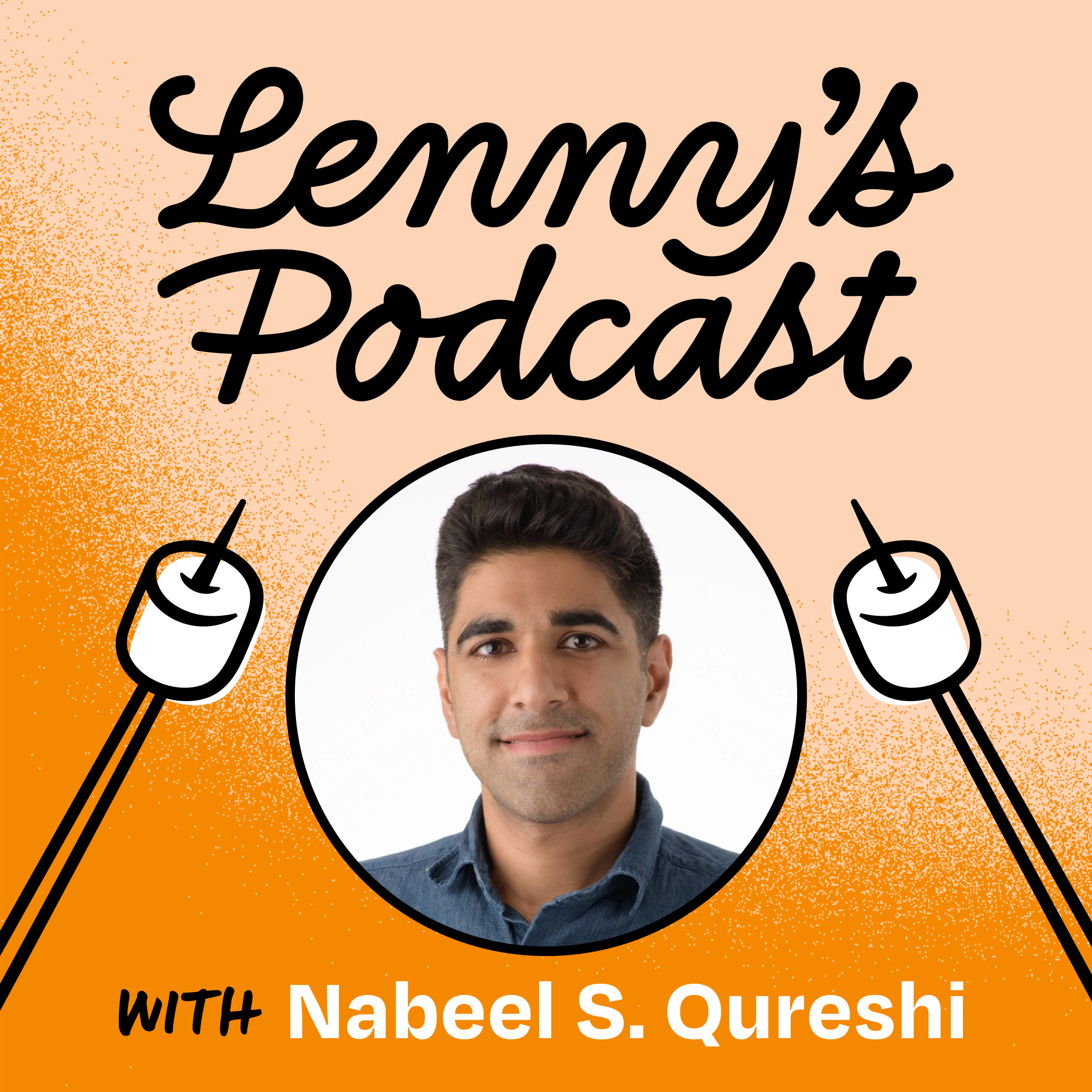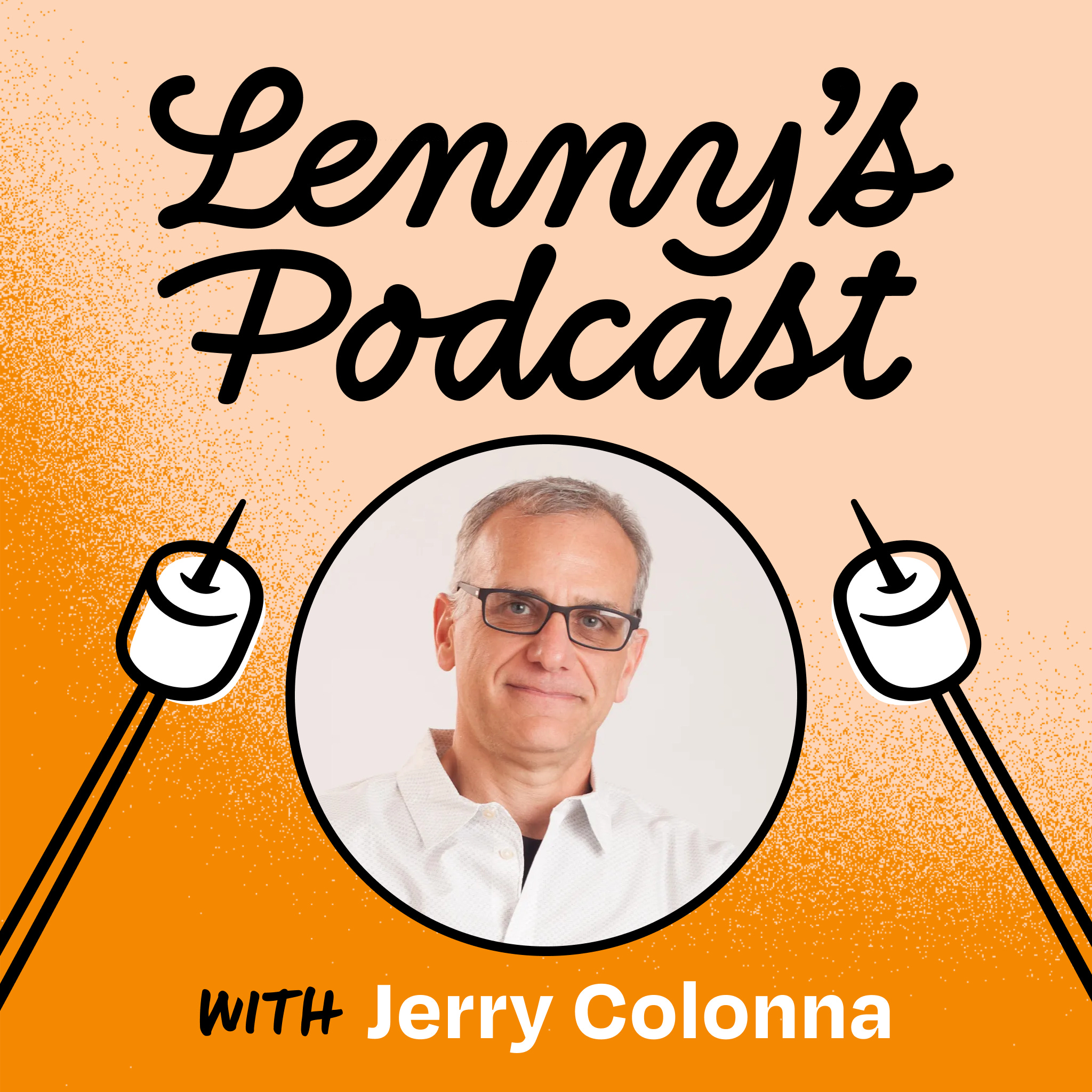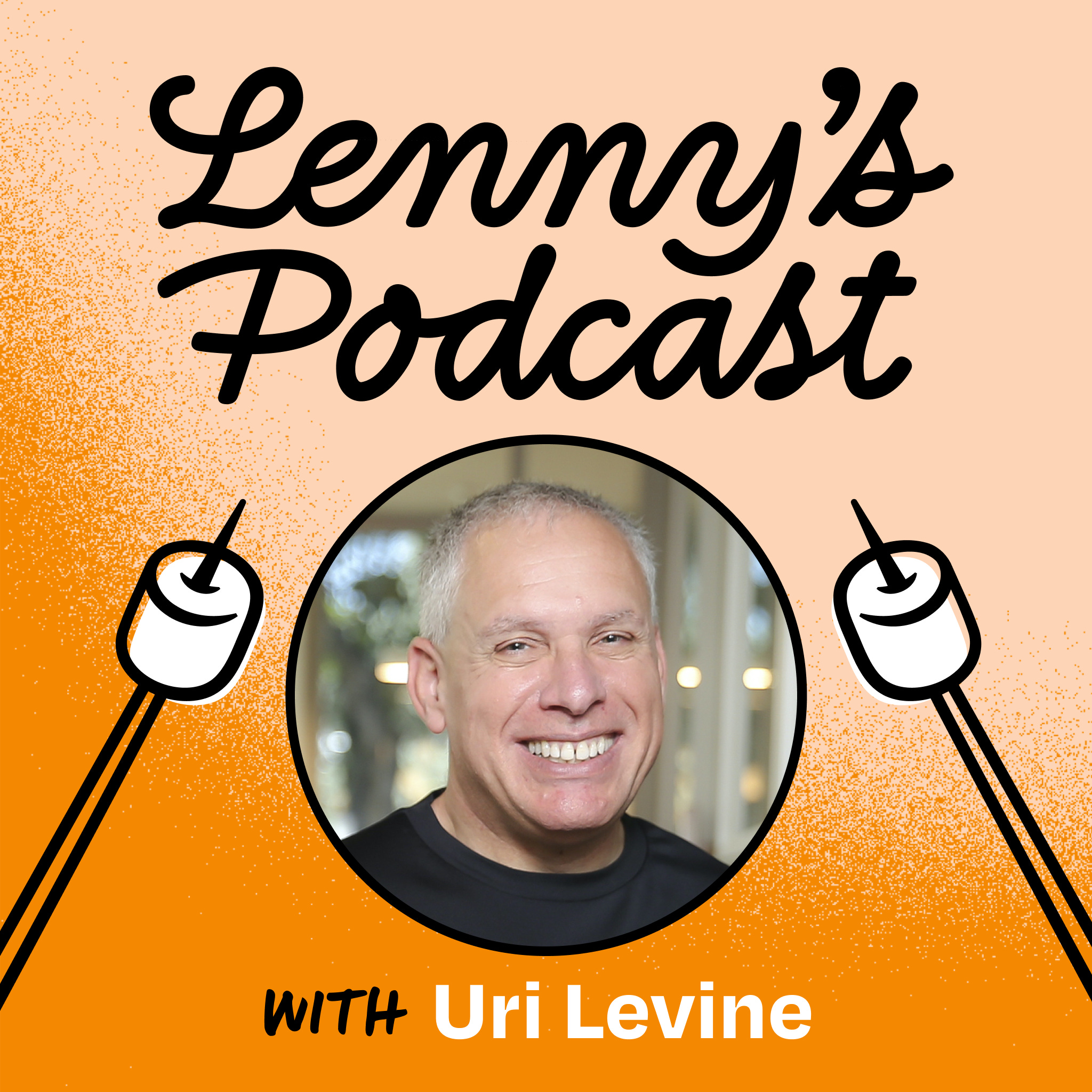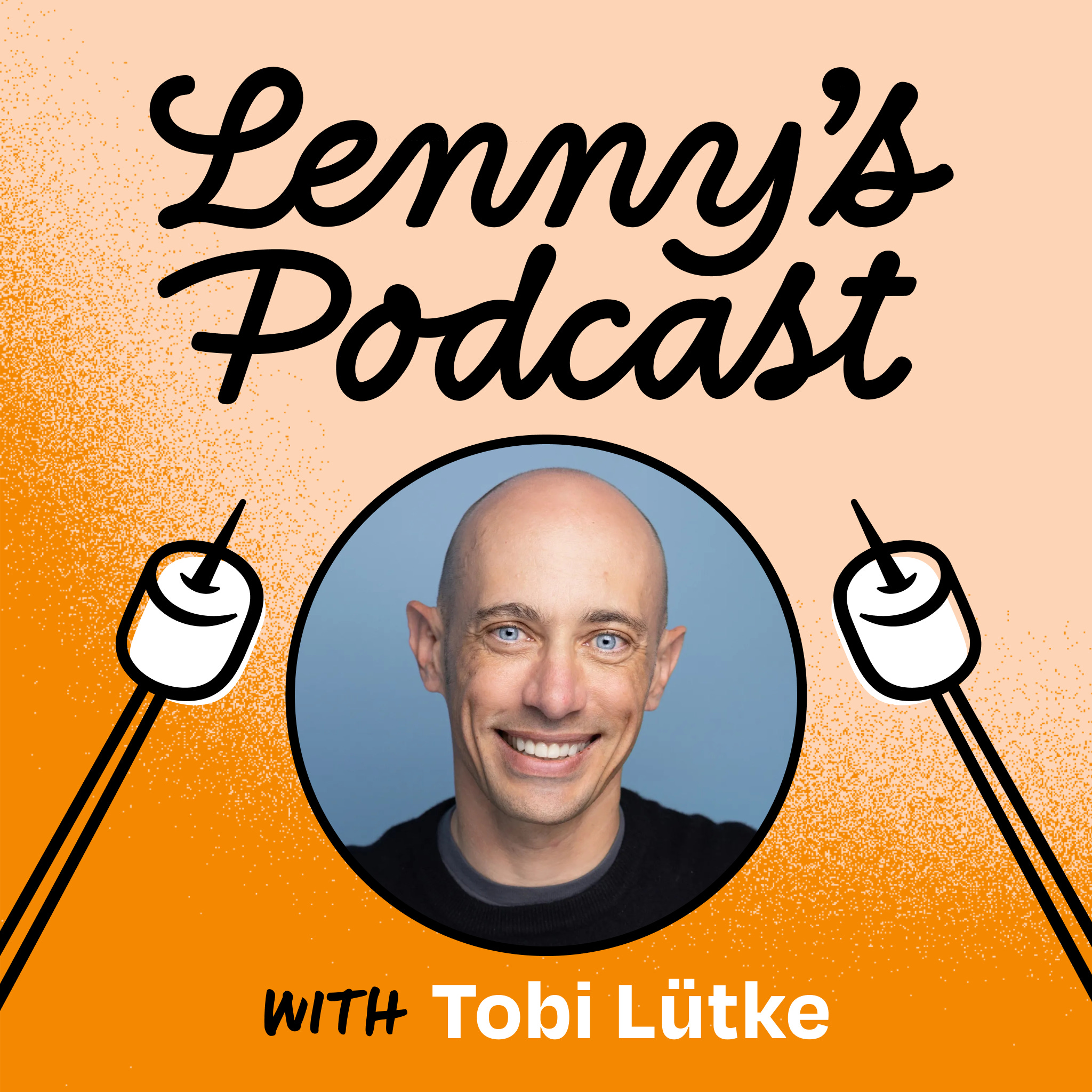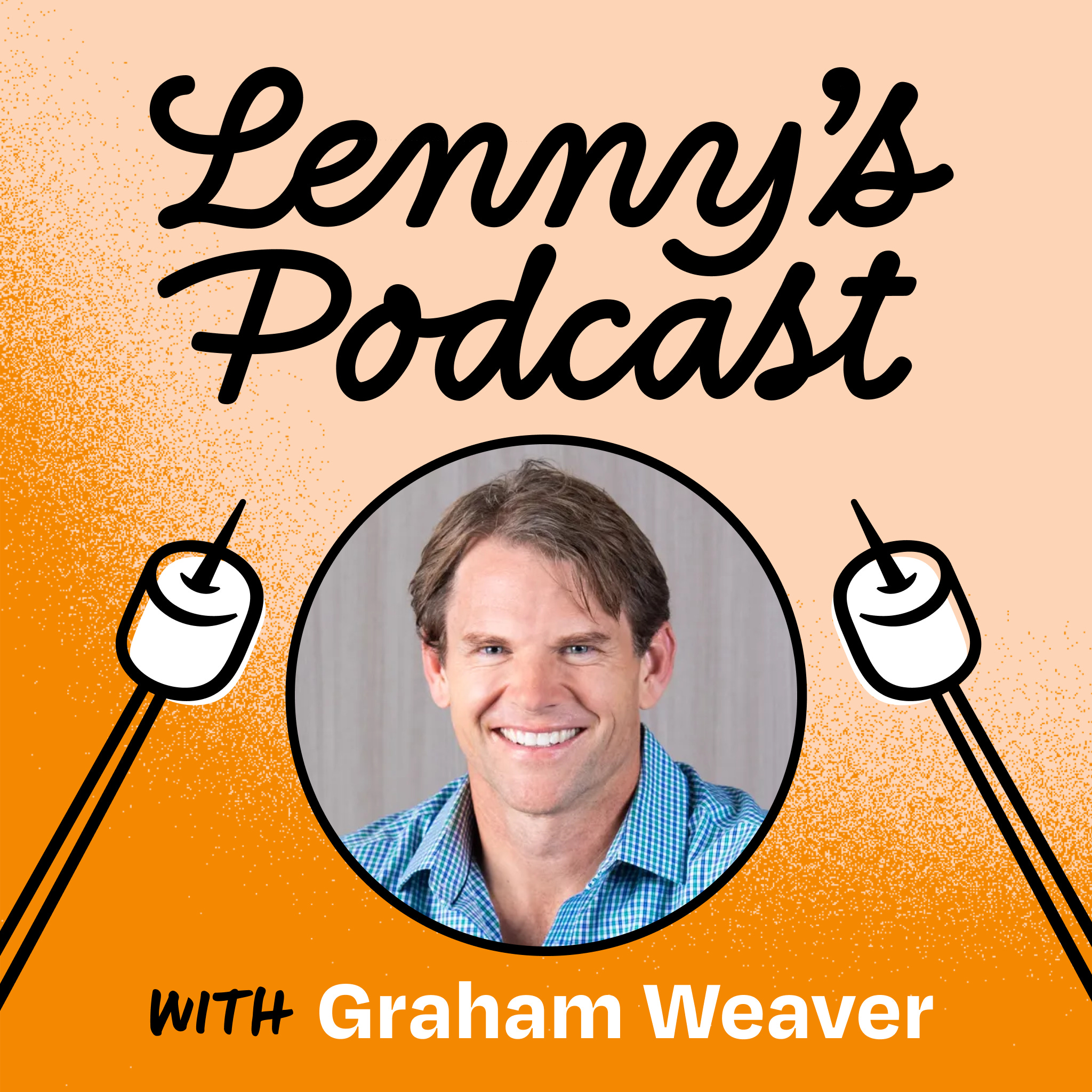
July 7, 2024 • 1hr 49min
Pattern Breakers: How to find a breakthrough startup idea | Mike Maples, Jr. (Founding Partner at Floodgate, ex-Product at Silicon Graphics)
Lenny's Podcast: Product | Growth | Career
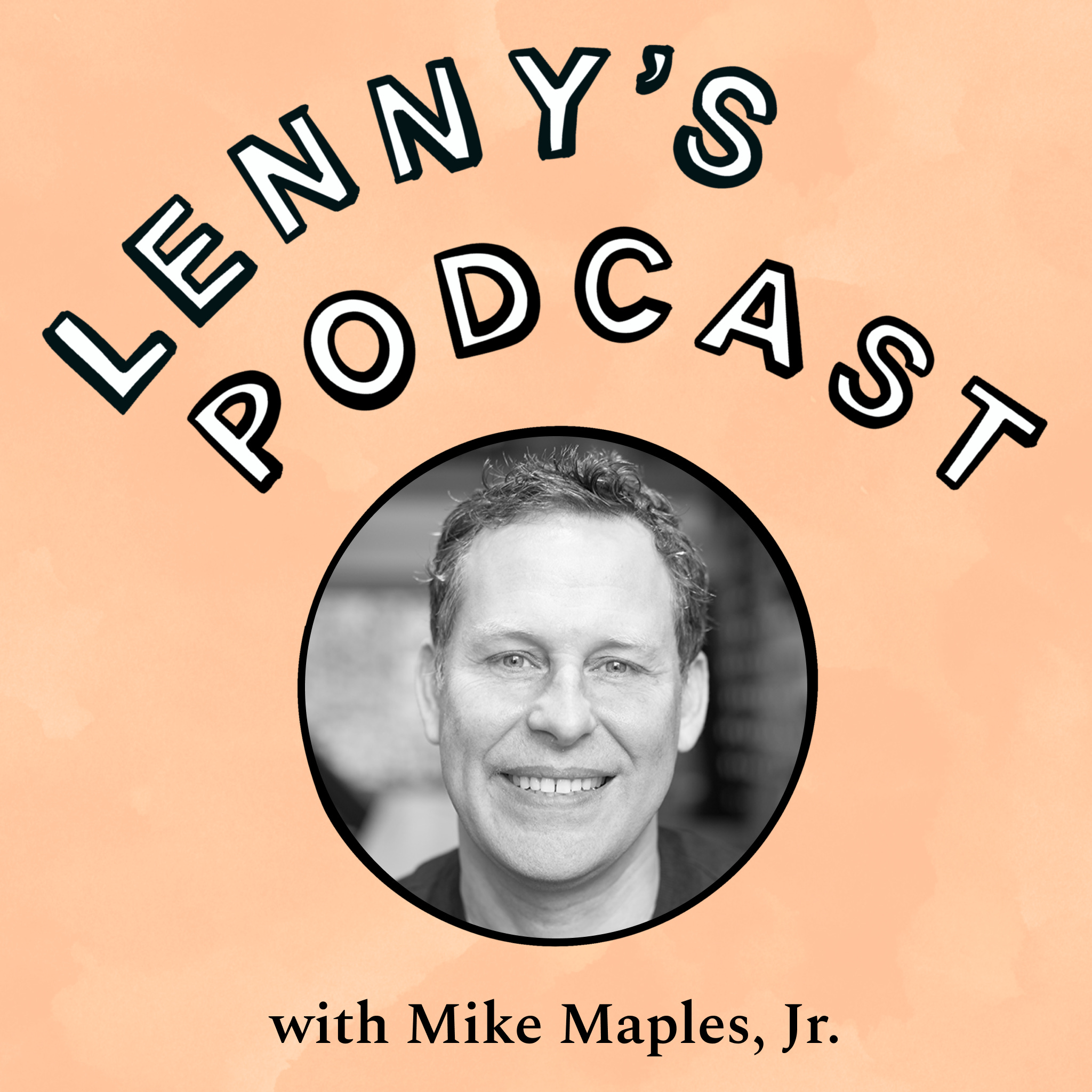
Key Takeaways
- There are three key elements of breakthrough startup ideas:
- Inflections - External events that create potential for radical change
- Insights - Non-obvious truths about how to harness inflections
- Founder-future fit - Founders uniquely suited to pursue a particular future
- Successful startups take three key actions:
- Create movements - Rally early believers around a vision
- Tell compelling stories - Frame the problem/solution narrative
- Be healthily disagreeable - Challenge conventions and ignore naysayers
- Great startup ideas often come from "living in the future" and noticing what's missing
- Focus on forcing a choice rather than making comparisons to existing solutions
- Startups win by proposing radically different futures, not by executing better than incumbents
- Internal chaos and disagreement is normal and even necessary for breakthrough startups
- Large companies can foster innovation by creating autonomous, low-visibility teams
Introduction
Mike Maples Jr. is a legendary early-stage startup investor and co-founder of Floodgate. He's made early bets on transformative companies like Twitter, Lyft, Twitch, Okta, and more. In this episode, Mike shares insights from his new book "Pattern Breakers: Why Some Start-Ups Change the Future", discussing what separates startups that break through and change the world from those that don't. After years of studying thousands of startups, he's uncovered three key ways that breakthrough founders think and act differently.
Topics Discussed
The Three Elements of Breakthrough Startup Ideas (13:52)
Mike outlines the three core elements he's identified in successful startup ideas:
- Inflections - External events that create potential for radical change in how people think, feel and act. Examples:
- iPhone 4S with GPS chip enabling ride-sharing apps
- Improved smartphone cameras enabling Instagram
- COVID-19 regulatory changes enabling telemedicine
- Insights - Non-obvious truths about how inflections can be harnessed to change behavior. Should be:
- Non-consensus - Most people initially skeptical
- Right - A subset of people irrationally excited
- Founder-future fit - Founders uniquely suited to pursue a particular future vision:
- Deep knowledge of the future space
- Strong intrinsic motivation
- Relevant network and ecosystem connections
Mike emphasizes that great startup ideas come from "living in the future" and noticing what's missing, rather than trying to think of startup ideas directly.
The Importance of Non-Consensus Insights (28:10)
Mike discusses why the best startup ideas are often initially non-consensus:
- If everyone likes your idea, it's probably too similar to the status quo
- You want some people to be skeptical, but a subset to be irrationally excited
- Great startups propose radically different futures, not incremental improvements
- "The best startup ideas have this trait where most people don't like it or are even hostile to it, or just kind of meh about it, but some subset of people are just like, oh my God, where have you been all my life? This is amazing."
The Power of Surprises in Generating Insights (36:58)
Mike explains why being open to surprises is crucial for breakthrough insights:
- Breakthroughs by definition haven't happened yet - there's no recipe
- Interact with cutting-edge tech but actively savor surprises
- If you only validate existing beliefs, you don't learn anything new
- Construct experiments to enable surprises, not just validate hypotheses
- "If you're an authentic truth seeker, you're always hoping to be surprised. And you think of surprise as a gift because you think, wow, maybe I encounter that surprise before anybody ever has."
Founder-Future Fit (47:36)
Mike discusses the concept of founder-future fit:
- No single "best" founder archetype - depends on the specific future vision
- Sometimes young first-time founders are ideal (e.g. Zuckerberg, Gates)
- Other times, experienced industry veterans are needed (e.g. Okta, Applied Intuition)
- Key is having founders uniquely suited to understand and pursue a particular future
- "Founder Future fit is ultimately about authenticity and it's about who is the most authentically matched for that different radical future."
Advice for Aspiring Founders (55:33)
Mike offers advice for those looking to start companies:
- Get out of the present - immerse yourself in potential futures
- Your opinion about the future is only valid if you're living in it
- Spend time with people far ahead on technology/behavior edges
- Work with "lighthouse" customers living in the future
- Proactively seek out opportunities to experience potential futures
Creating Movements and Storytelling (1:03:57)
Mike explains how successful startups create movements and tell compelling stories:
- Movements leverage grievances of a minority against tyranny of majority
- Early adopters motivated by belief, not pragmatism
- Tell stories that make early believers the heroes, not the founder
- Toggle between describing the current world and potential future
- Tailor storytelling to different audiences (customers, employees, investors)
- "The founders sometimes make the mistake of thinking that they're the hero, but they're not. The early believers are the heroes. And it's the job of the founder to tell a story that emotes early believers to want to move with them and co create the future with them."
The Role of Disagreeableness in Startups (1:24:22)
Mike discusses the importance of healthy disagreeableness for founders:
- Startups are fundamentally disagreeable acts challenging status quo
- Need to be willing to sacrifice status to pursue the mission
- Can't stand out if you always fit in
- Great founders often more disagreeable than history portrays (e.g. Bill Gates)
- High standards and tough leadership can inspire greatness
- "You can't stand out if you always fit in, right? The only people who are different can really make a difference."
Applying These Principles Within a Company (1:34:42)
Mike shares how large companies can foster breakthrough innovation:
- Treat pattern-breaking ideas differently from normal initiatives
- Create autonomous teams separate from main organization
- Make projects less visible to avoid corporate antibodies
- Accept higher failure rates but with asymmetric upside potential
- Examples: Apple iPhone, Amazon AWS, Lockheed Skunk Works
- "You have to treat it as a totally different thing. And that's really hard for companies."
Conclusion
Mike Maples Jr. provides a wealth of insights on how breakthrough startups emerge and succeed. By understanding inflections, generating non-consensus insights, and leveraging founder-future fit, aspiring entrepreneurs can increase their odds of creating truly transformative companies. The key is to propose radically different futures rather than incremental improvements, rally early believers through movements and storytelling, and maintain the courage to be disagreeable when challenging the status quo. For established companies, fostering breakthrough innovation requires creating the conditions for autonomous teams to pursue high-risk, high-reward opportunities. Ultimately, pattern-breaking startups win not by executing better than incumbents, but by fundamentally changing the game.

